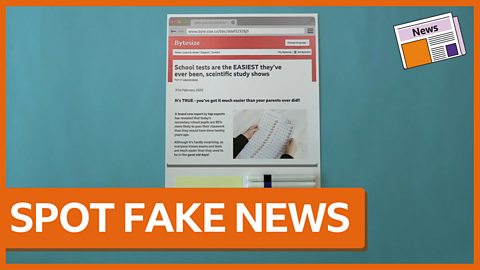Social media is a source for so many stories, but how do you know which ones are true?
The BBC’s Reality Check team looks at the stories which trend across various platforms and sort out the facts from the fake information. By doing so, they aim to provide a clearer picture on subjects including a Covid-19 vaccine and the claims people make about laws that impact on us in this unusual time.
Jack Goodman tells us how he and his colleagues at Reality Check investigated two stories about the pandemic back in May and July.
For stories like these, and any other claims which go viral, there are tools that come in particularly handy for reporters.
Finding what’s viral
Looking for the stories that people are talking about would be a tricky task without tools that monitor social media. These programmes can tell you which posts are trending, how popular they are, and where in the world they’re being viewed.

That includes claims made on TikTok and Instagram stories. But in some cases, checking stories like these can be tricky. On some social media platforms, such as Instagram Stories, these posts can disappear after 24 hours. The team has to be quick to trace the source.
If, for example, a story that claims an existing treatment could cure Covid-19 has two million shares across Twitter, Facebook and Instagram, then that’s a sign for the Reality Check team to take a closer look.

Expert advice and opinion
The team of fact-checking journalists will have built up a comprehensive list of contacts over the years including experts in relevant fields who are happy to be contacted again to provide advice and quotes for their stories.
It’s not just in the UK. There will be times when the team has to contact organisations abroad to verify a claim, especially if a particular country is the source of a claim under investigation.
Specialist help can also be found through media organisations. One example is the Science Media Centre, which matches an expert with whatever query a journalist has. Other organisations may also have a press office, where questions can be directed for an official response.

Conspiracies and fake news
These are just some of the stories Jack and Reality Check team have investigated since the pandemic began:

Calling in the law
Confirmation from experts is invaluable but, as Jack showed in the video, there are times when people will take a legal document and interpret them in a way that can support conspiracy theories about Coronavirus or other subjects.
In these situations, a lawyer will usually be able to provide a definitive answer which will either prove or debunk a claim being made. As Jack explained in the video, this was a big help when someone claimed documents from 1984 showed a vaccine would be mandatory if one becomes available.

Striking a balance
At the end of the fact-checking process, a journalist may have the necessary evidence which proves a story that went viral contained false claims and misinformation. But the checking doesn’t always end there.
Balance is vital in journalism, where both sides of a story are reflected. It could be that a claim made on a viral video has a degree of truth in it. For example, the person posting it may be referring to a specific rule or regulation that applies in their town or city, but isn’t reflected in the wider world. That’s when Jack and the team will attempt to contact them so they can put their viewpoint across. Even if someone doesn’t respond, it’s important to reach out.
Finding out more
The Reality Check team look at claims on many different subjects throughout the year, with health being one of them. If you see claims being made on social media that you aren’t sure about, take a look at their page to see if it’s being investigated.

Where next?
Think like a journalist: How to check a story
BBC journalist Tina Daheley explains how she checks the facts when reporting on the latest news.

Quiz: Can you spot the signs of fake news?
Separate the facts from the fakes with our tricky quiz.

How to be impartial and separate facts from opinions - BBC Young Reporter
Take a look inside the newsroom and see what it takes to be a trusted journalist and a reliable news source.

Fact or Fake?
Find out how to spot and stop fake news with BBC Bitesize.
